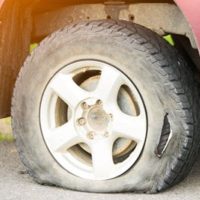Defective Truck Parts Can Cause Accidents

When commercial vehicles, like semi-trucks, collide with smaller passenger cars, the results are almost always devastating. Unfortunately, many of these kinds of accidents could have been prevented if the truck driver or his or her employer had taken the proper precautions when it came to vehicle maintenance. Failing to inspect the brakes and tires regularly, for instance, could leave drivers unaware of an impending brake system failure or tire blowout.
Defective Truck Parts
A defective vehicle part is one that doesn’t work properly and could potentially result in an accident. While this category does cover vehicle parts that were manufactured or designed incorrectly, these are by no means the only kinds of parts that qualify as defective. Examples of common defective truck parts include:
- Old tires with tread separation, under or overinflated tires, and tires with insufficient tread depth;
- Faulty brakes, brake lines, or hoses;
- Malfunctioning steering systems;
- Worn or faulty trailer attachments;
- Suspension failure;
- Faulty transmissions; and
- Cloudy or burnt out head or brake lights.
These kinds of problems can have serious consequences, resulting in a loss of control of the vehicle and a potential collision with other unsuspecting motorists on the road.
Proving Equipment Failure
Trucking companies are rarely willing to admit that an equipment or mechanical failure was the cause of a truck crash, so injured parties will often need to prove it. To do so, a claimant’s legal team will examine the truck, including data from the vehicle’s black box, or Event Data Recorder (EDR). These devices contain a wealth of information, including details about the proper functioning of the anti-lock braking system, the pressure in the tires, engine usage, and maintenance history. EDRs can even record critical event data, such as rapid declaration prior to an accident. In many cases, carriers will only release black box data after receiving a court order. It’s important to act quickly after an accident to avoid the recordings being deleted or tampered with.
Besides examining EDR data, a plaintiff’s legal team will also assess evidence from the accident scene and the damage sustained by the vehicles. Accident reconstruction specialists may also be brought in to conduct a forensic analysis of how the crash occurred. Once this evidence has been obtained, plaintiffs will need to demonstrate that the owner of the commercial truck and the trucking company failed to conduct regular inspections of or maintenance on the truck and didn’t replace worn or damaged parts.
Set Up a Free Consultation Today
If you were in a truck accident and believe that it was the result of a truck driver’s negligence or mechanical defect, we can help you. Our legal team can conduct a thorough investigation into the cause of the crash and help you seek maximum compensation for your losses. Don’t hesitate to reach out to the dedicated and compassionate Florida truck accident lawyers at Boone & Davis for help. You can contact a member of our legal team by calling our office at 954-566-9919 or by completing one of our brief online contact forms.
Sources:
fmcsa.dot.gov/safety/passenger-safety/inspection-repair-and-maintenance-motor-carriers-passengers-part-396
flhsmv.gov/2023/04/20/florida-highway-patrol-commercial-vehicle-enforcement-unit-conducts-unannounced-brake-check-inspections-statewide/
